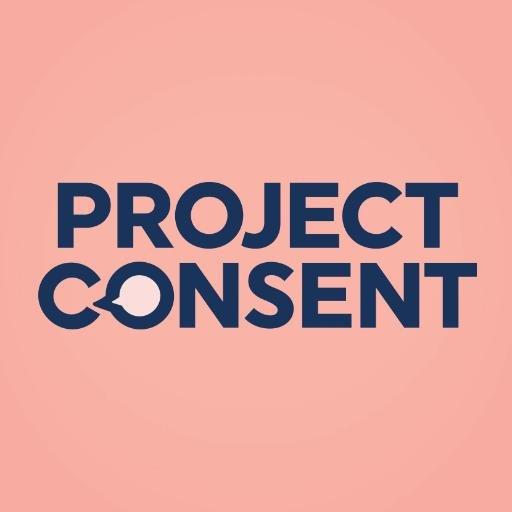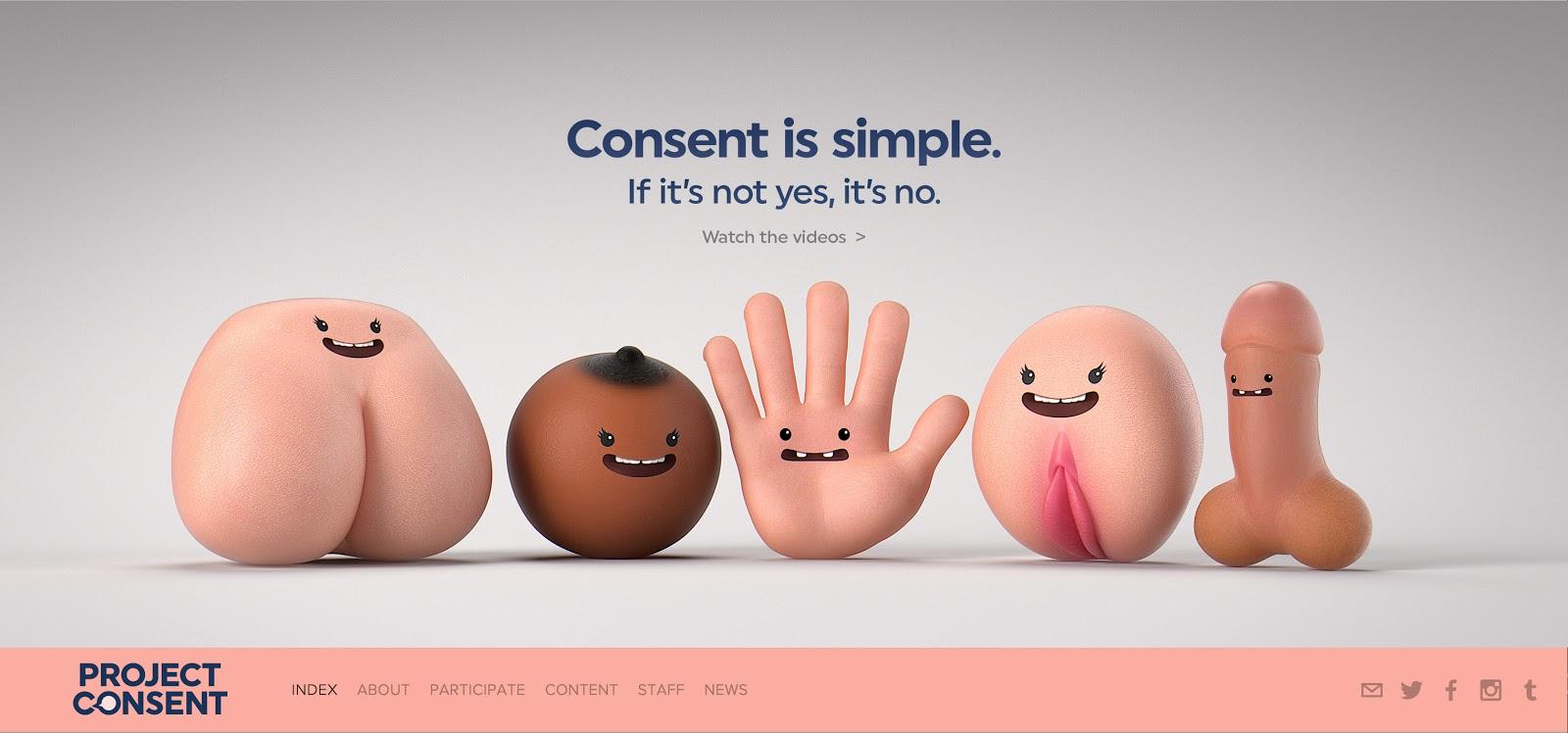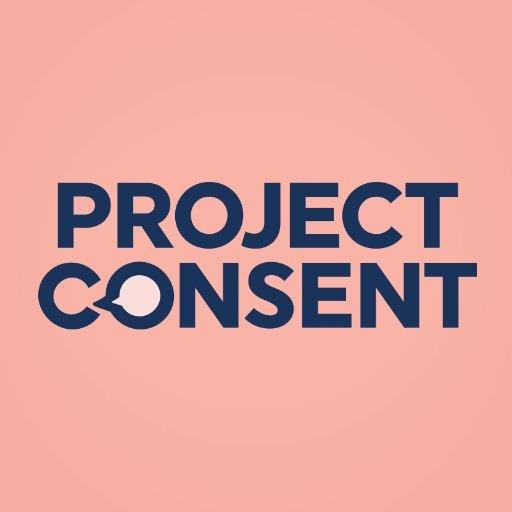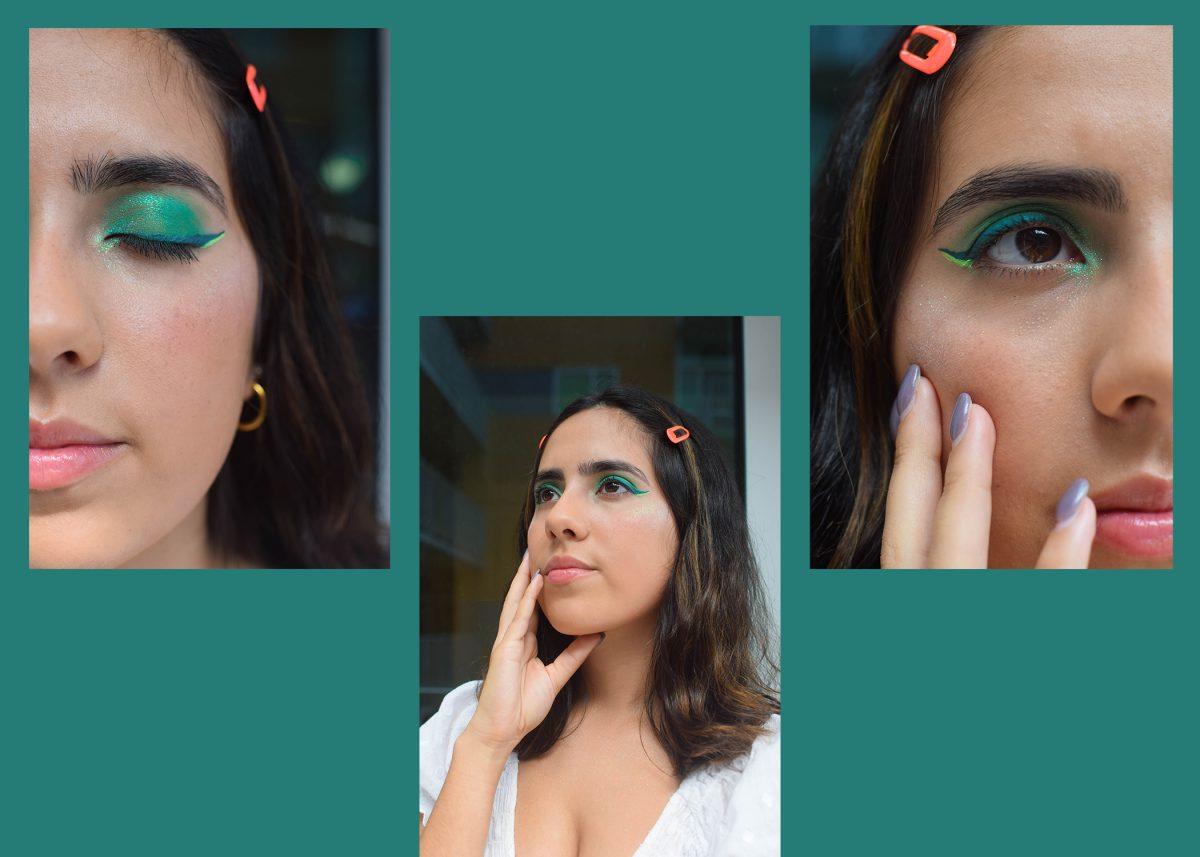
http://www.projectconsent.com/
Social media platforms have helped student-run projects transform into huge national movements. One of the most recent non-profit organizations that started out small and became a highly trafficked online movement is Project Consent that combats rape culture and sexual assault.
Story by Krystal Cruz
Project Consent received spotlight this year after creating peculiar animations that gained traction on social media. The non-profit was started by one person. Over time, college students from across the country, including one student from the University of Texas at Austin, joined the campaign. The project had an instagram called “The Consent Awareness Project.” Students shared pictures of public participation by writing “no” on their hands to promote consent awareness.
After gaining a small community of about 500 followers on Twitter and Instagram, the staff members decided to expand from social media posts to publishing articles centered around consent awareness on their website.
The project did not receive serious public recognition until Canadian advertising agency Juniper Park contacted the organization with a free advertisement offer. The Project Consent directors agreed to collaborate with Juniper Park to construct something new to captivate their audience. Within a couple of months, the agency had a mock up of the odd animation they created.
Juniper Park constructed short videos consisting of small animated cartoon genitalia with small faces recreating real life situations that relate to consent.. For example, one cartoon includes a vagina and penis dancing. When the penis tries to get into the vagina, the vagina steps back and says no, so the penis walks away. The ad ends with text across the screen that reads “Consent is simple: if it’s not a yes, it’s a no.”
Marketing sophomore at the University of Texas at Austin Michelle Zhang is the managing director at Project Consent. She manages staff members and coordinates with the team on the website. She also works with other executive directors. She says she was pleasantly surprised with the public reaction to the campaign. “Suddenly, all of this blew up,” Zhang says.
When Zhang first saw the animations on the website, she was just shocked by the unexpected full frontal animated nudity. She admits not knowing how to respond, but once talking to her colleagues she realized how much she loved them. She says the animation “calls to the effectiveness of weirdness, it gets attention.”
Zhang says her biggest surprise was the overwhelming feedback they received within hours of posting the advertisement on their website and social media platforms. The project gained thousands of followers on Twitter and Instagram and received hundreds of emails of both appraisal and dismissal.
The project was accused of being sexist and transphobic because the animations only depicted females as the victim. Although it was hard for them to filter through the backlash to find things they could improve, the three directors of the Project, Sara Li, Mackenzie Cakebread and Michelle Zhang focused on fixing what they could. They realized that there were considerations that must be taken into account and Zhang says they hope to become “more trans and gender inclusive with future campaigns.”
On March 6, 2016, Project Consent released a statement on their social media profiles and website addressing “Diversity and Inclusivity with Project Consent” where they say, “In future campaigns, we want to bring a wider scope of awareness to victims of all genders, sexualities, and races. Sexual assault is not an isolated crime; it can unfortunately be experience by anyone.” They also further mention their goal to “aim to make it known that #ConsentIsSimple and mandatory for everyone in any situation and that we support all survivors, always.”

http://www.projectconsent.com/
Although Zhang says going through the hate mail was not easy, what kept her and the other members of the project going was the overwhelming support they received. “Every once in awhile, we get an email or Facebook message from someone and they’ll be like ‘thank you so much for starting this. I was in a bad place, until I found your campaign,’” Zhang says. “That’s why we do this, because even if we were to get 50 hate mails, one email from someone who says we have made a difference in his/her life, it’s worth it to do something like this.”
Project Consent Communication Director and University of Toronto student Mackenzie Cakebread interacts with the Project Consent audience on social media. “It’s one of the most gratifying parts of my job, being able to directly talk with and see the reaction to what we post,” Cakebread says,” Cakebread says.
Following the animations, Zhang says the project was able to expand in more cities across the United States and even overseas, like in Amsterdam. “This points out how amazing the Internet is that you could just start a movement without a real headquarters,” Zhang says.
“There’s so many possibilities, it’s just a matter of doing it.” First, she mentions trying to fix issues with the Instagram account, which was deleted. “Somebody reported it for nudity, but I guess that’s the cost of animating genitals,” Zhang says. “We’ve been trying to contact Instagram but I think there’s some sort of protocol you have to go through and we need to register legally as a non-profit.”
Project Consent has kept record of future projects and plans to go through with them as time goes on and sufficient funds become available. “Going forward, we obviously want to partner up with Juniper Park to produce more campaigns because they have a great animation studio,” Zhang says. “We also want to keep turning out the articles we produced and launch into merch campaigns.”
When considering the money that could be brought into the campaign, Zhang says the group would use those funds to further support projects in the future. “Once we have enough capital, make donations to sexual assault survivor funds,” Zhang says.
Project Consent promises to continue improving and keep providing consent awareness for the general public in anyway they can. “Anything we can do to provide more awareness, we will do,” Zhang says.











































